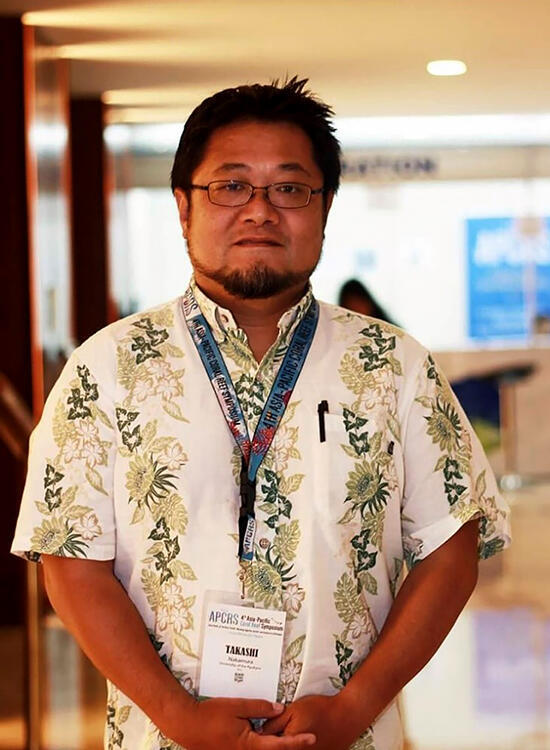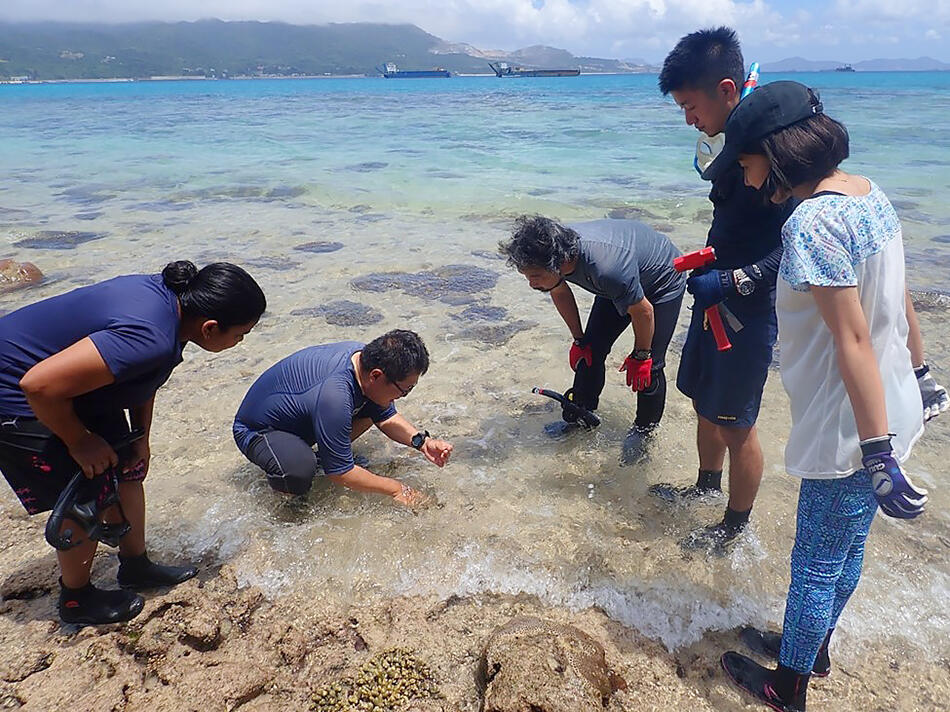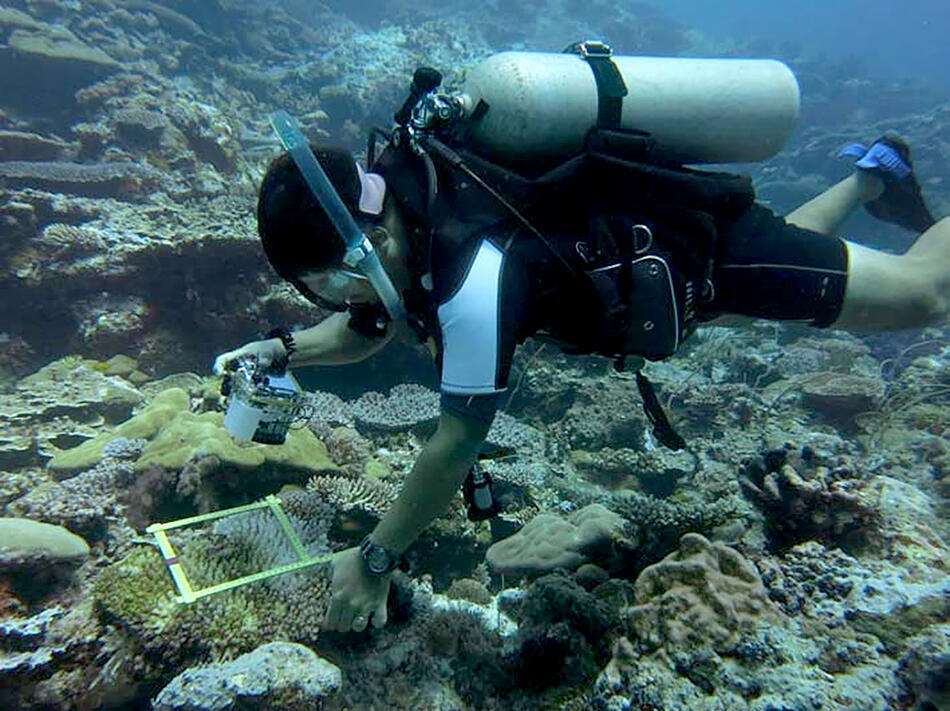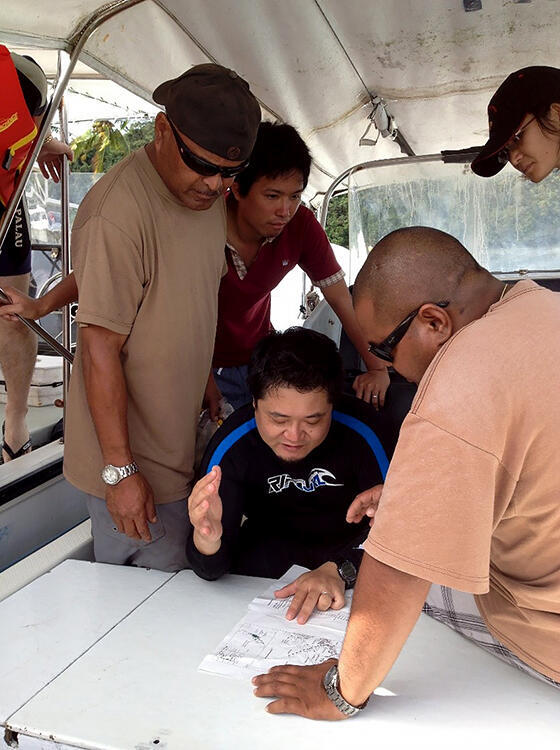Coral reefs are the most diverse marine ecosystems on Earth. They are a keystone species that not only play a crucial role in supporting the flora and fauna of the marine ecosystem but also act as a protective shield against storms and other natural calamities and prevent coastal erosion by acting as barriers against waves. Corals are composed of tiny polyps, which secrete calcium carbonate skeleton that hardens and forms a reef structure over time. The coral polyps live symbiotically with algae that provides them with their energy. These coral reefs, however, are degrading globally owing to several anthropogenic as well as natural causes.
Coral reefs constitute the subject of research of Dr. Nakamura, who has been studying coral bleaching and ways to protect them. Global warming leads to an increase in the temperature of the waters. This, in combination with other stress-inducing factors, causes a reduction in the algal density in corals, thereby whitening or bleaching the corals. "In the summer of 1998, when I had nearly finished my undergraduate study, I came back to Japan and went to the sea for the first time to the Kerama Islands near Okinawa Island. When I entered the sea there, it was very beautiful. The corals were pale and brightly fluorescent. I didn't know at the time that such a condition is called "coral bleaching," which causes a very serious problem to the ecosystem," recalls Dr. Nakamura. Since then, he has been expanding his research on coral bleaching as well as the coral community to understand the influence of climate change on reefs.

(Provided by Dr. Nakamura)

(Provided by Dr. Nakamura)
The Palau Project
His research led him to study coral bleaching in Palau where researchers from both natural sciences as well as humanities collaborated to help in the development of sustainable livelihoods protecting the country's natural environment. Palau is a small country in Oceania whose main economic activities involve tourism and fisheries. In the face of degrading corals, if nothing is done to protect its rich natural environment, the country may lose its main economic attraction.
Not only global warming but also human activities such as use of insecticides and pesticides and agricultural fertilizers which ultimately flow into the oceans impact coral health. Palau was also experiencing a rapid increase of inbound tourists, which ultimately causing problems such as water shortage, improper wastewater, sewage treatment, improper garbage disposal, and smuggling of fish, all of which served a severe blow to the biodiversity of the country. "In the diving sites that have become tourist attractions, there has been an increase in trash, with crowded tourists literally bumping into each other in the water," says Dr. Nakamura.

(Provided by Dr. Nakamura)
The aim of the project was to develop science-based policy options for sustainable environment in Palau that would conserve the biodiversity as well as the society. There is a unique bay in Koror, Palau which Dr. Nakamura believes is impossible for to manually recreate. Despite the warmer water with lower pH in the bay, the corals there are healthy and thriving. Explaining the process he says, "The water temperature rises easily there because there is not enough water circulation. In addition, there are a lot of living things that are part of this environment, so the pH level is lower. It is impossible for humans to create such an environment from scratch."
Dr. Nakamura says that the people living in the coastal zones are familiar with ways to create sustainable living conditions since this traditional knowledge has been passed down for generations. For instance, local fishermen do not catch fish at a certain place or a time of the year because they are already aware of certain rules of the natural system that come up during those time periods which are not conducive to fishing, and efforts are made not to pollute the water bodies while making taros, both of which are local practices. "There is also a risk of sediment from Taro fields polluting the sea, but the women of these communities have traditionally protected the Taro field, which means that the land that we should be working on is already being managed," Dr. Nakamura awes at the local knowledge of the residents.
Dr. Nakamura recalls with fond memory, his experience in a far-flung island nation so different from his hometown in Japan, "The local fishermen who were helping our field survey caught fish with very simple tackles and fed me, and I thought it was a really sustainable way of life. The people I met, including the researchers I worked with, are very friendly. I was really grateful for that."

(Provided by Dr. Nakamura)
However, living in Palau also brought with it resource availability challenges. The people had to either make everything from scratch or wait for a while to import it. "We sometimes had to set up a system to buy and export the experimental tools from Japan," recalls Dr. Nakamura. The internet infrastructure at that time was also very instable and weak which made research difficult. However, improvements have been made now.
Another upside to the project in Palau was that young students and local researchers got interested in expanding skills and knowledge on scientific research as well as conservation. Students from Palau were being accepted as graduate school students on scholarships to carry on research on marine environments in Japan or being inducted as interns in scientific studies. Also, many students and researchers were being dispatched to Palau for research and education onsite surrounded by some of the world's most beautiful coral reefs.
Scope for Joint Research
Dr. Nakamura believes that joint research would be extremely beneficial for the Asia-pacific region in the field of marine conservation. "When it comes to research that can be used anywhere in the world, it is necessary for everyone to go to various places and be exposed to different cultures and people, so I think it is very important to conduct joint research with other countries," he says. He also emphasized the importance of creating networks and making connections which would help young researchers in furthering research or even in other fields of work. "We have students from Maldives, Palau, Philippines, Indonesia and China. When they graduate, they can go on to do specialized work or even join the government and work in the general tribal sector. Such connections will continue to emerge and limiting this work to just Japan will limit the scope of the research as well. Hence, having connections from across countries and fields is important," says Dr. Nakamura.
Dr. Nakamura also urges students to challenge themselves and come out of their comfort zones and travel places to carry on research. For students who are just embarking on their journeys, they can visit Science Japan which is a repository of research on a wide array of topics and prepare themselves for their overseas adventure.
Produced by the Science Japan Editorial Team



